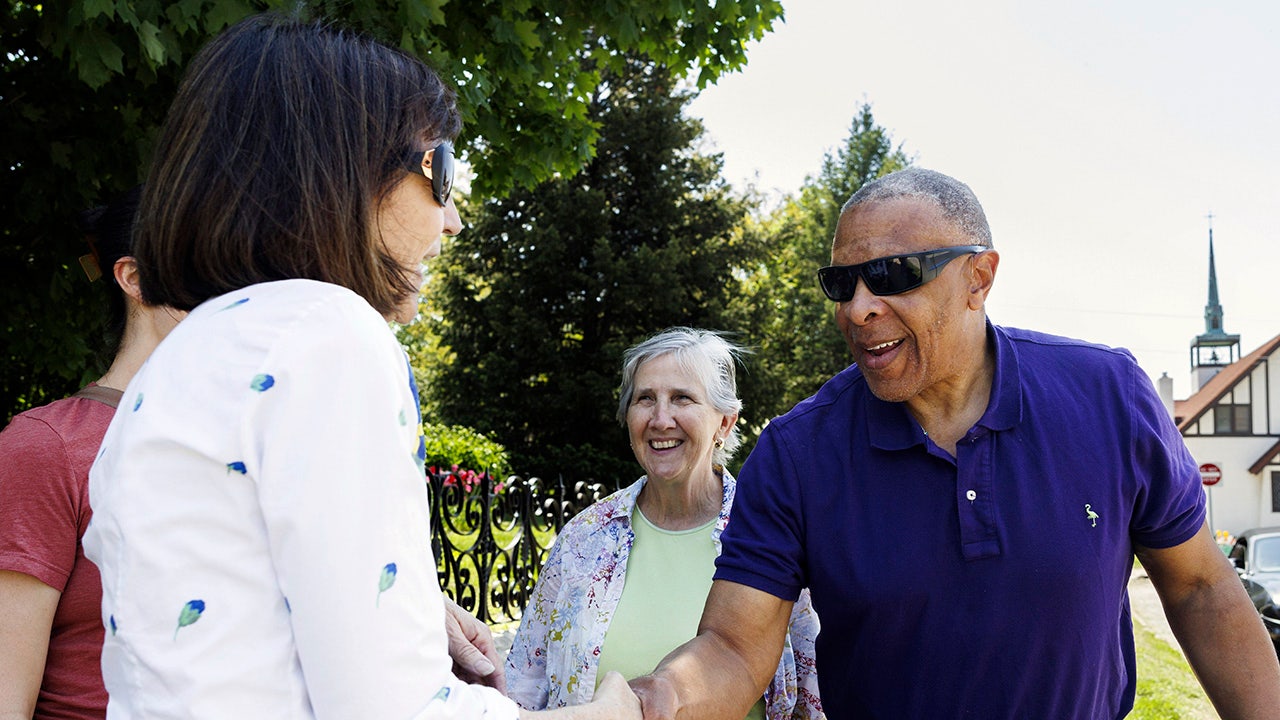Posted on Wednesday, April 16, 2025
|
by AMAC, D.J. Wilson
|
0 Comments
|
The bond between humans and pets is both ancient and profound. Having a loving pet, such as a cat or dog, provides companionship, warmth, and unconditional love. For seniors, pet adoption can be particularly beneficial, making a home come alive and alleviating feelings of loneliness. Sometimes, roadblocks to pet adoption may exist for senior citizens.
Let’s explore the topic of seniors and pet adoption.
Pets enhancing lives
Pet adoption can deliver happiness, especially for seniors experiencing isolation exacerbated by the loss of a spouse or prior pet. For many, the presence of a pet is not only mood lifting, but it is also a source of comfort, companionship, and entertainment. Unfortunately, there are some realities that older Americans may face as applicants for pet adoption.
Older adults under scrutiny?
Pet adoption centers have the primary goal of placing pets in safe, permanent, and life-long homes. Here’s the reality. Some rescues may restrict older senior citizens from adopting a specific pet. This is typically not meant to be discriminatory. Rather, rescues fear situations where pets may be too challenging to handle or situations where pets may outlive the adopter. It is part of the shelter’s responsibility to find suitable matches between pets and potential owners. For example, a large dog who tugs heavily on the leash requires a strong handler for safety. Thus, muscular dogs are likely not the best pet for older fragile individuals due to risk of injury.
Why deny?
There is typically no blanket age restriction for pet adoption, but shelters and rescues can deny applications for valid reasons they see fit. While an owner’s advanced age isn’t necessarily a disqualifying factor, especially as people are living longer and healthier lives, shelters will assess numerous factors for all ages during the pet adoption process.
This includes:
- Physical and mental capacity. Can the applicant handle the care of this pet?
- Financial stability. Can the applicant afford to care for the pet?
- Living situation. Does the applicant have a suitable home in which to raise the pet?
- Time commitment. Does the applicant have time to attend to the pet’s needs?
- Bonding factor. Is the pet a good match for the applicant?
Shelter discretion
Pet adoptions are largely based on careful evaluations of the potential pet “parents” and consideration of the above-mentioned factors. A senior applicant may be denied if they can’t demonstrate the ability to provide adequate care due to health, financial, or other circumstances.
Helpful considerations:
- Build a relationship with the shelter. Visit, discuss your interest in giving a pet a loving home, and have an open conversation about the pet adoption process. Do your homework to understand various breeds. Inquire about adoption requirements, costs, and whether test periods are an option. This enables you to discover if a pet is a good fit for you and your family before fully committing.
- For the elderly, it may be helpful to visit a shelter with a trusted younger family member willing to provide a backup home for an adopted pet should the primary adopter be unable to fulfill his or her duties. Having a plan in place for the pet’s care in the event of one’s passing or inability to care for a pet is an extra step that demonstrates foresight and responsibility.
- Select a pet to match one’s physical energy level. For example, active and jumpy dogs need owners who are physically energetic. Whereas quiet lap dogs are better suited for people with calm energy. Senior dogs or cats tend to be less frisky than younger puppies and kittens. Additionally, older dogs are more likely to be trained and housebroken, bonuses for older people seeking to adopt. Note that senior pets are often overlooked in shelters, so adopting one is a great way to give a deserving animal a loving home.
- When selecting pets from a shelter, the animal’s temperament is a major consideration. Senior citizens will likely enjoy the company of a sweet and gentle dog rather than one with defiant tendencies.
- Mature adults may search for special programs like “Seniors for Seniors” that waive or reduce adoption fees for senior citizens adopting senior pets. Additionally, look for programs that offer additional support for senior pet owners.
- Read all contracts carefully to understand details and your rights to include state and local laws, animal shelter rules, ownership status, non-refundable deposits and more. Some shelters may enable staff to conduct in-home wellness visits during the adoption process or periodically. Failure to comply with the contract may result in seizing the pet in some instances.
The upside
Pet adoption is a loving act that can deliver immense joy. Older people, particularly those who are retired, likely have the time to provide pet care and training, which is a huge bonus. Additionally, people who have owned cats or dogs before are experienced and can offer pets the training, care, and support they need to live well. Seasoned pet adopters also understand the lifetime commitment they are making and take the decision seriously.
The downside
Caring for pets comes with responsibilities. Pets require daily care, such as being fed, played with, and exercised. Cats and dogs also require grooming, medications and vaccinations, and more. Unfortunately, it is extremely expensive to own a pet, from basics like food to pet sitting and veterinary bills. This may be challenging for folks on limited fixed incomes. For those who cannot afford a pet, it may be better to love and spoil a family member’s dog or a friend’s cat rather than bring a pet into the home. Seniors who enjoy traveling should carefully weigh decisions to get a pet, as it can tie people down.
The bottom line about seniors and pet adoption
Many adults of mature age can provide warm and loving homes for pets and benefit from their companionship. However, there are instances where age may be a roadblock to pet adoption. Typically, this is borne out of caution rather than age discrimination as shelters seek to find lifetime homes for pets that are good fits. It’s important for senior citizens to understand the full responsibilities of pet ownership and demonstrate that they can provide adequate care for the pet’s life. Older people adopting a cat or dog should consider pets that align with their lifestyle, personalities, and physical abilities so that the animal-human match is guaranteed to work.
Read the full article here











